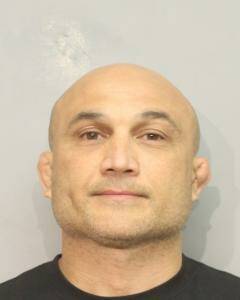KAILUA-KONA — As big of a challenge combating human trafficking is in Hawaii, convincing people it even happens here in the first place is a whole other one.
“It’s happening,” said Ho‘ola Na Pua Regional Coordinator Renee Perrington. “And we need to start opening our eyes and see it.”
To get people to open their eyes, she and about a dozen other volunteers lined Palani Road by Lanihau Center to wave signs and raise awareness about sex trafficking of minors.
Ho‘ola Na Pua is an Oahu-based organization that aims to help survivors of sex trafficking.
The organization is currently building in Oahu the state’s first home specifically for girls rescued from sexual exploitation.
Pearl Haven, as it’s called, will provide therapy and intervention for up to 32 children and will be “one of the largest licensed and most comprehensive health and trauma-centric campuses for this victimized population in the United States,” according to the organization’s website.
But giving trafficking survivors access to care is just one step of solving the issue, activists say.
Educating the public is also a big part of the issue.
That’s where people like Perrington come in.
She said at Wednesday’s event that she and others are planning on going into schools to talk to students, parents and youth groups about the issue.
She compared it to other efforts by groups like Mothers Against Drunk Driving, by identifying a societal problem and bringing about change in their communities.
“I think grassroots movements are the way that things get done,” she said.
Zahava Zaidoff, who attended the rally with her daughter, said advocating against trafficking and raising awareness about the issue has “always been a passion.”
Zaidoff works in mental health and substance abuse, which often intersect with the issue. She said that while there’s “definitely a lack of awareness,” another big issue is a pervasive “blame the victim” mentality in the community.
Perrington noted that up until July, Hawaii didn’t even have a sex-trafficking ban, making the state the last to have such a law.
The law expanded protections for victims. Human trafficking had already been banned, but sex workers still faced prosecution regardless of how they got into the trade, according to the Associated Press.
Despite the change in the law, Zaidoff said there still needs to be an effort in communities to change the conversation surrounding the sex trafficking of minors.
She also called on community organizations like churches and professional groups to be on the front lines and help provide a safe place for youth.
“I just want people to ask the question: ‘What can we do?’” she said.
Perrington said Ho‘ola Na Pua is in need of volunteers who can spread the word and help educate community members.
“We need speakers, people to work tabling events,” she said.
The organization will also be starting a mentoring program for survivors of sex trafficking.
Parents, she said, should also take the time to educate their children.
It’s not an easy conversation, Zaidoff said.
“As a parent it’s a hard decision to talk to my daughter about that,” she said. “As a parent, you just have to weigh that and say ‘I want you to be safe.’”
She stressed the importance though of having that talk.
“Nobody should have the fear of having it,” she said. “This is how we save our youth.”









